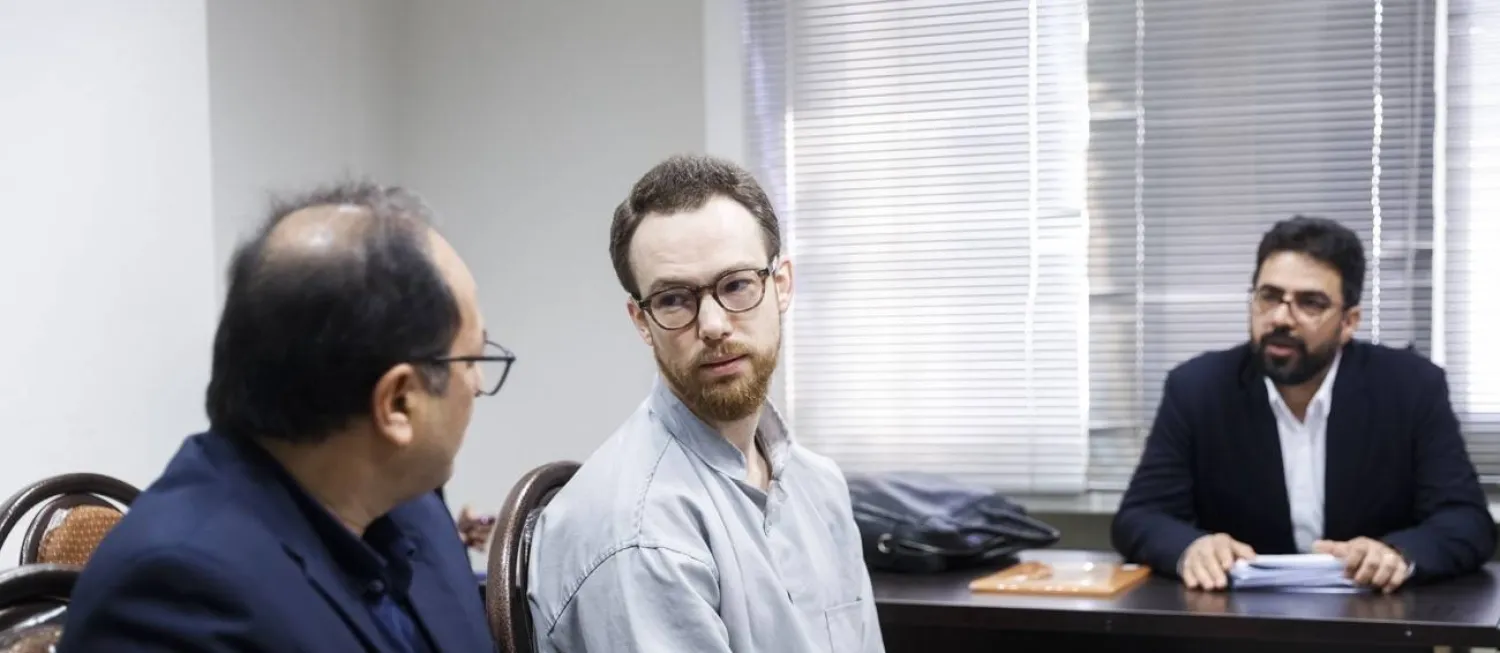Iranian authorities have accused a Swedish EU diplomat, held in a Tehran prison for more than 600 days, of conspiring with Iran's arch-enemy Israel, the judiciary said Sunday.
“Johan Floderus is accused of extensive measures against the security of the country, extensive intelligence cooperation with the Zionist regime and corruption on earth,” the judiciary's Mizan Online news agency said, according to AFP.
Corruption on earth is one of Iran's most serious offenses and carries a maximum penalty of death.
Floderus, 33, was arrested on April 17, 2022, at Tehran airport as he was returning to Iran from a trip with friends.
The Swede, who works for the European Union diplomatic service, is being held in Tehran's Evin prison.
Sweden’s foreign minister, Tobias Billström said: “There is no basis whatsoever for keeping Johan Floderus in detention, let alone bringing him to trial.”
The EU’s foreign affairs chief, Josep Borrell, called for his immediate release, saying: “There are absolutely no grounds for keeping Johan Floderus in detention.”
The prosecution claimed Floderus had gathered information on Iran's “nuclear and enrichment programs,” carried out “subversive projects” for the benefit of Israel and established a network of “agents of the Swedish intelligence service.”
It further claimed he was involved in “intelligence cooperation and communication with the European Union” and exiled opposition group, the People's Mujahedin (MEK), according to Mizan.
Floderus’s case was not revealed publicly at first while the Swedish government and the EU worked quietly behind the scenes for his release.
In September, the Floderus family broke the silence and called for intensified efforts to secure his release.
At the time, Iran’s judiciary said Floderus had “committed crimes” in the country and an investigation into his case was being finalized.
An EU official, speaking on condition of anonymity, told AFP in September that they had not received “a clear answer” as to why Floderus had been detained.
And 600 days after Floderus was detained by Iranian authorities, Human Rights Watch called for his immediate release adding that Swedish authorities should do more to ensure that happens.
“The immediate and unconditional release of Floderus and others arbitrary detained should be a top priority for Sweden as well as for the EU in relations with Iran,” it said.
Iran has long used detained foreign nationals as bargaining chips to secure the release of its citizens or frozen funds held abroad.
Floderus's arrest came after an Iranian citizen received a life jail term in Sweden for his role in the Iranian regime's 1988 mass executions of thousands of opponents.
EU relations with Iran have also been battered by Tehran's deliveries of weaponry to Russia and a crackdown on protests over the death of Mahsa Amini.
The 27-nation EU has placed repeated rounds of sanctions on Iran over the weapons supplies and the repression of demonstrators.
Iran Accuses European Diplomat of ‘Cooperating with Israel’

Floderus was arrested at a time when an Iranian national was being tried in Sweden (Mizan news/AFP)

Iran Accuses European Diplomat of ‘Cooperating with Israel’

Floderus was arrested at a time when an Iranian national was being tried in Sweden (Mizan news/AFP)
لم تشترك بعد
انشئ حساباً خاصاً بك لتحصل على أخبار مخصصة لك ولتتمتع بخاصية حفظ المقالات وتتلقى نشراتنا البريدية المتنوعة







